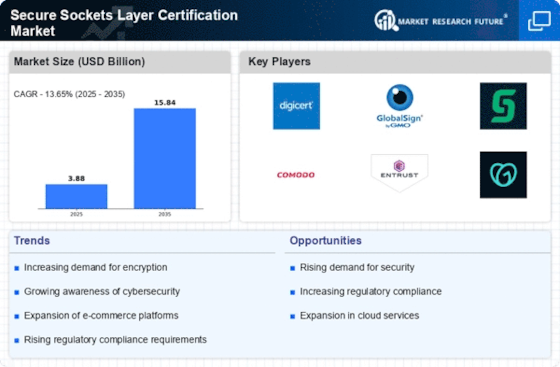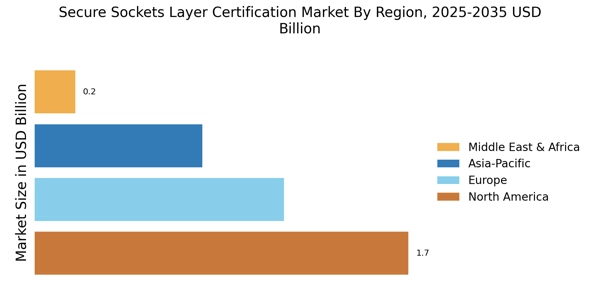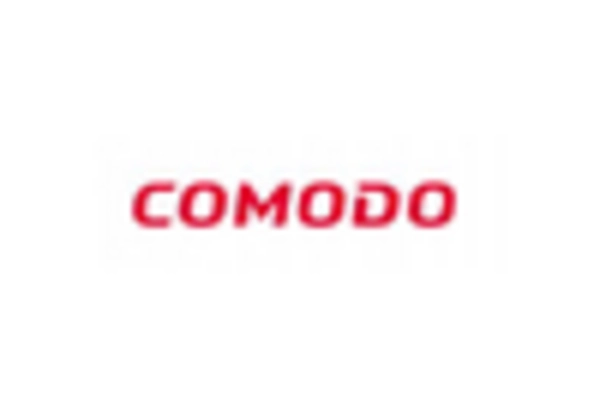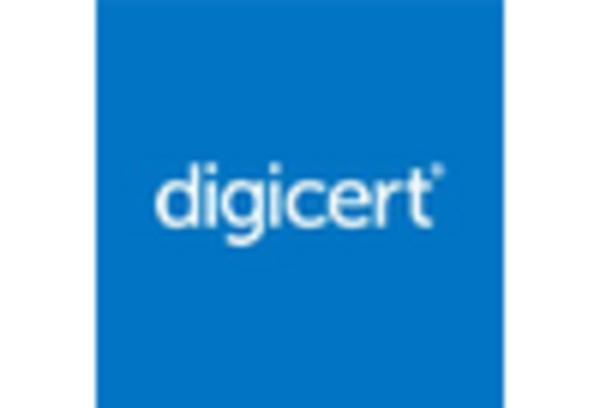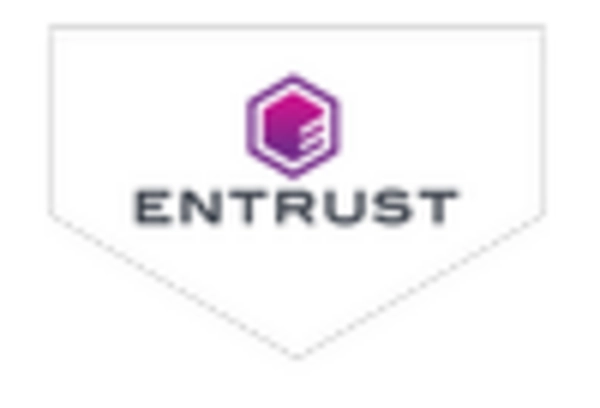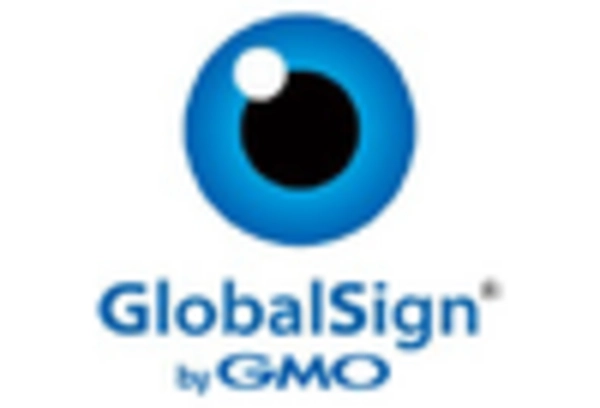Growing Awareness of Data Privacy
As data privacy concerns become more pronounced, consumers are demanding greater transparency and security from businesses. The Secure Sockets Layer Certification Market is experiencing growth as organizations respond to these demands by implementing SSL certificates to protect user data. In 2025, surveys indicate that over 80% of consumers are likely to abandon a transaction if they perceive a lack of security. This consumer behavior is driving businesses to adopt SSL certifications as a means of building trust and credibility. Consequently, the Secure Sockets Layer Certification Market is poised for growth as organizations prioritize data privacy and security in their operational strategies.
Rising Incidence of Cyber Threats
The frequency and sophistication of cyber threats are escalating, prompting organizations to prioritize cybersecurity measures. The Secure Sockets Layer Certification Market is directly impacted by this rising incidence of cyberattacks, as businesses recognize the necessity of implementing SSL certificates to mitigate risks. In 2025, it is anticipated that cybercrime will cost businesses trillions of dollars, underscoring the urgency for robust security measures. As a result, organizations are increasingly investing in SSL certifications as a fundamental component of their cybersecurity strategies. This trend suggests a sustained demand for SSL certificates, positioning the Secure Sockets Layer Certification Market for continued expansion.
Technological Advancements in Cybersecurity
The rapid evolution of technology has led to significant advancements in cybersecurity measures, including the development of more sophisticated SSL certificates. Innovations such as Extended Validation (EV) SSL certificates and automated certificate management systems are enhancing the security landscape. The Secure Sockets Layer Certification Market is benefiting from these technological advancements, as organizations seek to implement the latest security protocols to protect their digital assets. In 2025, the market for SSL certificates is projected to grow at a compound annual growth rate (CAGR) of approximately 15%, driven by the increasing adoption of advanced encryption technologies. This growth reflects a broader trend towards prioritizing cybersecurity in organizational frameworks.
Increasing Demand for Secure Online Transactions
The rise in e-commerce and online transactions has led to an increasing demand for secure online environments. As consumers become more aware of cybersecurity threats, businesses are compelled to adopt Secure Sockets Layer Certification Market standards to protect sensitive information. In 2025, it is estimated that the e-commerce sector will reach a valuation of over 6 trillion USD, further driving the need for SSL certifications. This demand is not only limited to large enterprises but also extends to small and medium-sized businesses, which are increasingly recognizing the importance of securing customer data. Consequently, the Secure Sockets Layer Certification Market is likely to experience substantial growth as organizations prioritize the implementation of SSL certificates to enhance trust and security in their online platforms.
Regulatory Pressures and Compliance Requirements
Regulatory frameworks across various sectors are becoming increasingly stringent, necessitating compliance with data protection laws. The Secure Sockets Layer Certification Market is significantly influenced by these regulations, as organizations must ensure that they meet the required standards for data encryption and protection. For instance, regulations such as the General Data Protection Regulation (GDPR) and the Payment Card Industry Data Security Standard (PCI DSS) mandate the use of SSL certificates to safeguard personal and financial information. As businesses strive to avoid hefty fines and reputational damage, the demand for SSL certifications is expected to rise. This trend indicates a robust growth trajectory for the Secure Sockets Layer Certification Market, as compliance becomes a critical factor in organizational strategy.


